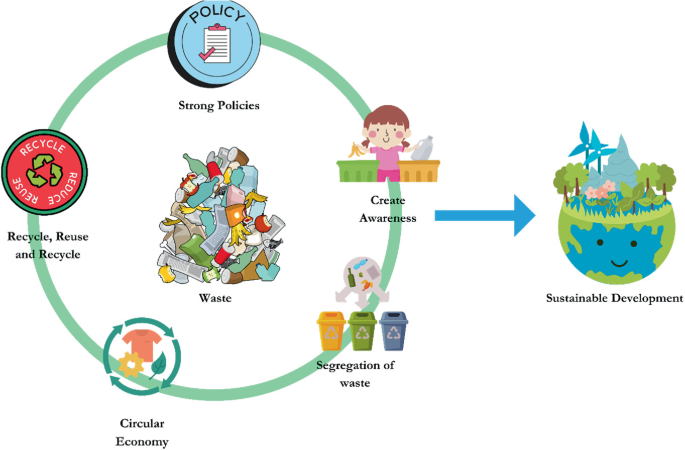The Main Principles Of Reclaim Waste
The Main Principles Of Reclaim Waste
Blog Article
Getting The Reclaim Waste To Work
Table of ContentsReclaim Waste - QuestionsHow Reclaim Waste can Save You Time, Stress, and Money.Not known Details About Reclaim Waste Everything about Reclaim WasteThe Single Strategy To Use For Reclaim Waste
Domestic sewage waste refers to the waste and items from a household septic tank. The appropriate administration and disposal of residential sewer waste require liquid waste to be transferred to a sewage treatment plant where the correct methods and devices are applied to cleanse and dispose of waste.
Commercial waste commonly includes prospective dangers, such as flammable products or a mixture of liquid and strong waste items, and requires a much more advanced and thorough disposal process. The disposal of business waste generally involves the filtration of waste before transportation to make certain secure and appropriate disposal. Hazardous waste is created from byproducts and drainage of industrial procedures and production.
This type of waste can not utilize the exact same sewer administration transport or procedures as septic or commercial liquids. The hazardous waste administration process needs the assessment and testing of fluid waste prior to it goes through the disposal process (industrial wastewater treatment). Drainage waste is the liquid waste that originates from overflow and excess stormwater in extremely populated locations or cities
Runoff waste can create contamination and flooding if not managed appropriately. Making sure appropriate waste administration can stop catastrophes and lower environmental harm.
The Ultimate Guide To Reclaim Waste
Call PROS Services today to discover our waste monitoring and disposal solutions and the appropriate means to care for the fluid waste you produce.
(https://www.gaiaonline.com/profiles/reclaimwaste1/46907679/)Do you understand what occurs to your water when you pull the plug, purge the bathroom or drain pipes the washing machine? No? Well, it deserves knowing. This supposed 'wastewater' is not only an important source however, after treatment, will certainly be released to our land, rivers or the sea. Utilized water from toilets, showers, bathrooms, kitchen sinks, washings and industrial procedures is known as wastewater.

water utilized to cool down machinery or tidy plant and equipment). Stormwater, a kind of wastewater, is runoff that moves from agricultural and city areas such as roof coverings, parks, gardens, roadways, courses and gutters right into stormwater drains, after rain. Stormwater streams untreated directly to local creeks or rivers, ultimately getting to the ocean.
Getting My Reclaim Waste To Work
In Queensland, most wastewater is treated at sewage therapy plants. Wastewater is moved from residential or industrial sites with a system of sewers and pump terminals, referred to as sewage reticulation, to a sewage treatment plant. Regional federal governments construct, keep and run most sewer therapy plants. Operators are licensed under the Environmental Management Act 1994 to discharge treated wastewater at an acceptable environmental requirement into waterways.
The Department of Natural Resources advises local governments regarding managing, operating and maintaining sewerage systems and therapy plants. In unsewered locations, city governments might call for homeowners to set up individual or house sewer treatment systems to treat residential wastewater from bathrooms, cooking areas, bathrooms and laundries. The Department of Natural Resources authorises making use of home systems when they are confirmed to be reliable.
The majority of stormwater gets no treatment. In some new class, therapy of some stormwater to get rid of trash, sand and gravel has started utilizing gross pollutant traps. Wastewater therapy occurs in 4 phases: Eliminates strong matter. Larger solids, such as plastics and various other things incorrectly released to sewage systems, are removed when wastewater is travelled through displays.
Wastewater after that flows into large tanks where solids work out and are eliminated as sludge. Grease and scum are skimmed from the surface. Utilizes little living organisms knows as micro-organisms to damage down and remove continuing to be dissolved wastes and great bits. Micro-organisms and wastes are included in the sludge. Eliminates nitrogen and phosphorus nutrients that can trigger algal this website blossoms in our waterways and intimidate aquatic life.
The smart Trick of Reclaim Waste That Nobody is Talking About
Nutrient removal is not available at all sewer therapy plants because it needs costly specialist equipment. Clear liquid effluent produced after therapy might still consist of disease-causing micro-organisms - liquid waste disposal.

This usually indicates wastewater has actually to be dealt with or impurities removed before it can be released to rivers. The majority of wastewater moves into the sewage system. Under the Act, neighborhood federal governments provide approvals and permits for eco appropriate activities (Periods) entailing wastewater launches that might have a regional influence. The department provides authorizations and licences to Periods including wastewater launches that might have a regional or statewide impact.
The Best Strategy To Use For Reclaim Waste
Otherwise, examples are considered laboratory analysis. Often lots of examinations are required to establish the levels of each of the different toxins such as oils, hefty metals and pesticides in water. Tracking gives accurate details concerning water high quality and can confirm that licence conditions are being fulfilled. The details obtained with monitoring provides the basis for making water top quality decisions.
Report this page